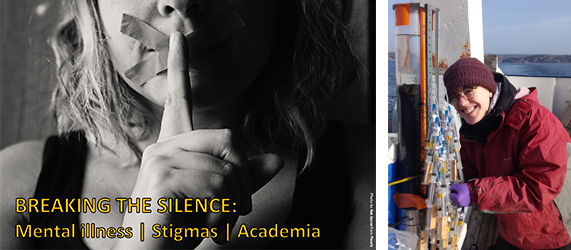There is no room for mental health problems, whilst the competition and pressure to publish is what threatens our wellbeing, as it often triggers common, yet sometimes severe symptoms of mental illnesses, which are not taken seriously enough. Not really what we can call a sustainable or encouraging environment, especially for early career researchers such as Doctoral Students. Globally, PhD students along with master’s students are six times more at risk for developing depression and anxiety disorders as opposed to the general public. Possibly the numbers of those who suffer from mental health problems are a lot higher, when including those who have a pre-existing condition. Regardless of an individual’s mental health history, all those affected have one thing in common: support, or the lack thereof, to be exact – one of the reasons why only a fraction seeks help. That has to be changed! But, what can each of us do? In order to answer that question, it is essential to understand how living and working looks like when mental illness is your constant companion. You can start by listening to the personal experience of a PhD Student.
Mareike Paul is a Doctoral Student in Marine Geochemistry the University of Helsinki, supervised by Tom Jilbert and Caroline Slomp (Utrecht University). Mareike received her B.Sc. in Geoscience from the University of Hamburg (2014) and her M.Sc. in Geoscience from the University of Kiel (2018) in collaboration with GEOMAR, Kiel. In her PhD project, she studies the mechanisms by which sedimentary trace metals are sequestered into marine sediments in response to deoxygenation, focusing on European Coastal Seas. Besides her research, she recently is more intensively involved in questions of mental health problems related to Academia.
